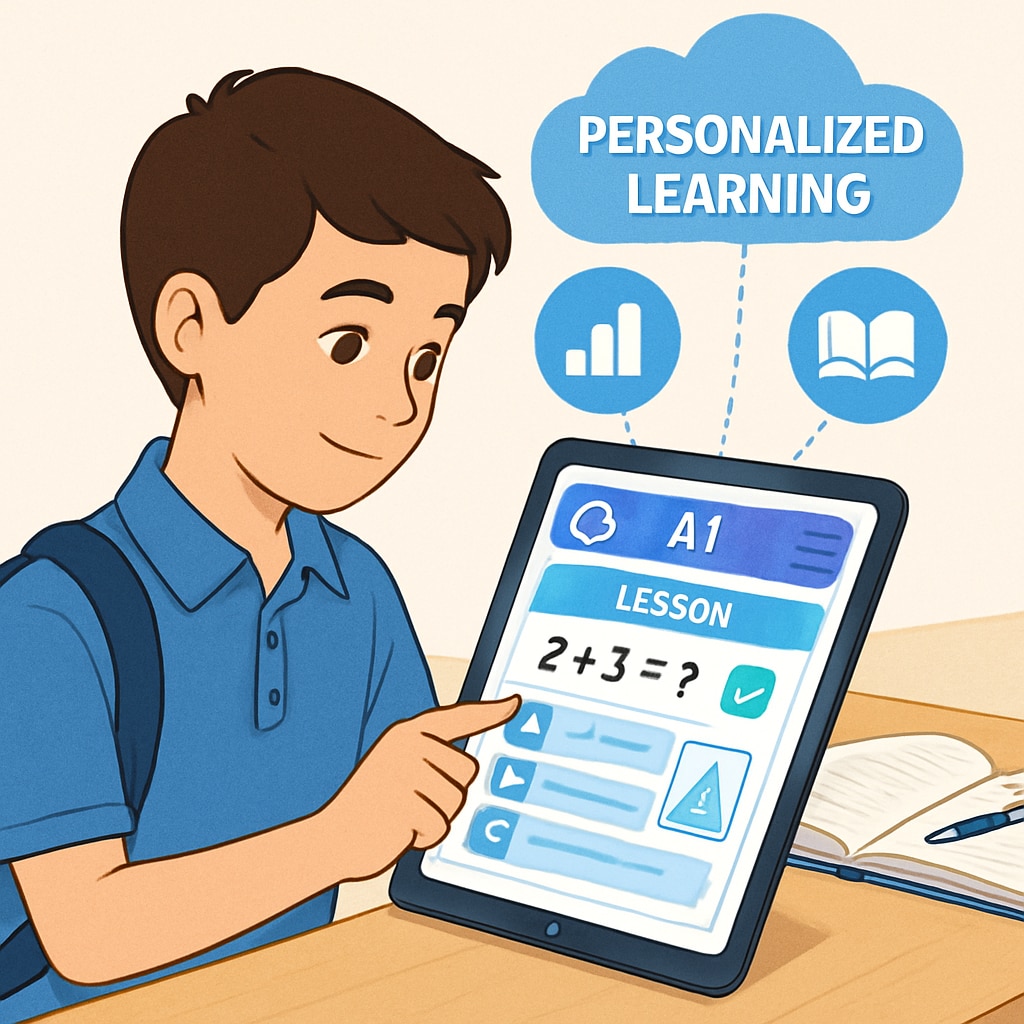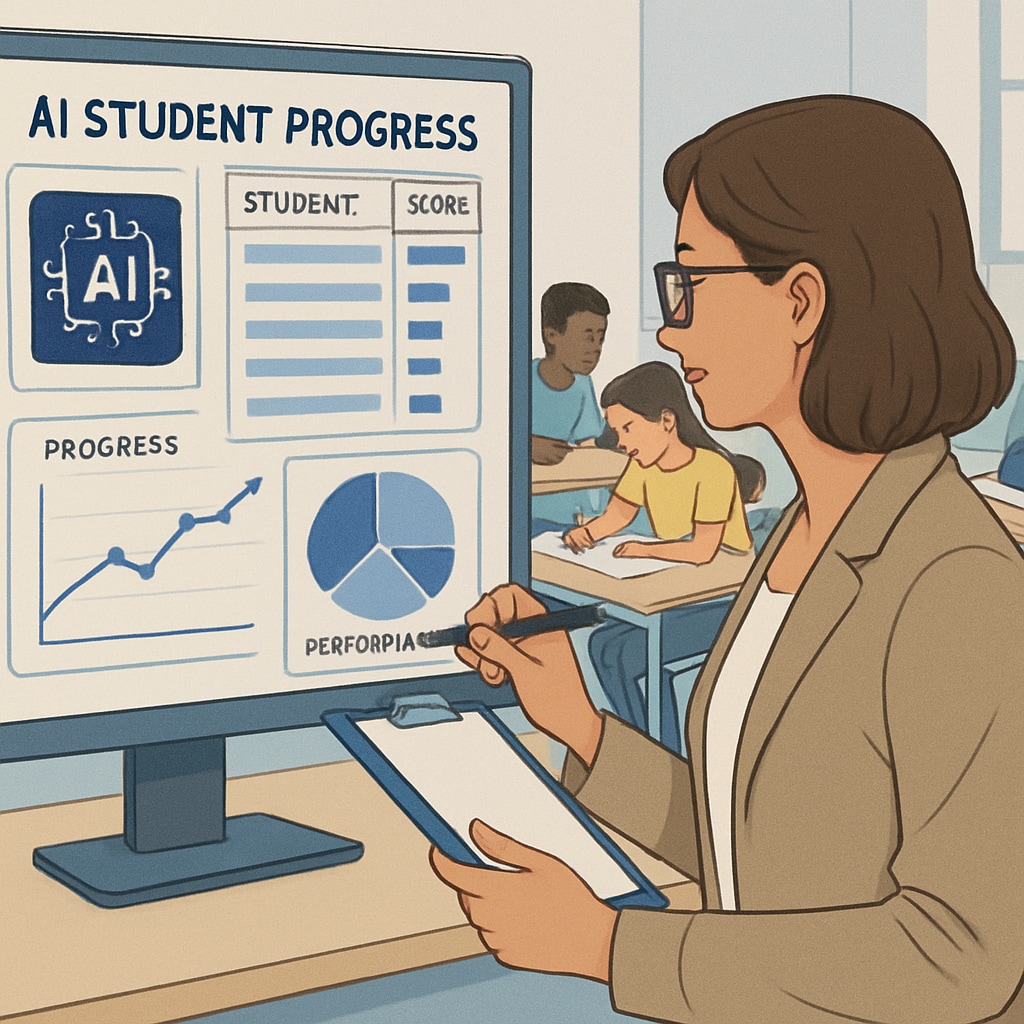Artificial intelligence (AI) is rapidly transforming school education, creating a profound future impact on how students learn and how teachers teach. In the next 5 to 10 years, AI is predicted to revolutionize classrooms by enabling personalized learning, reshaping teacher roles, and introducing innovative assessment methods. However, as we embrace this technological revolution, it is essential to understand both the opportunities and the challenges that come with it.
Personalized Learning: Tailoring Education for Every Student
One of the most significant ways AI is expected to change school education is through personalized learning. Traditionally, classrooms have relied on a one-size-fits-all approach, but AI algorithms can analyze individual student data to create customized learning paths. For example, adaptive learning platforms like Khan Academy already use AI to adjust lesson difficulty based on student performance.
AI-driven tools can identify strengths, weaknesses, and learning styles, ensuring that students receive content at the right pace and in a format that suits them best. As a result, students who struggle with specific topics can receive targeted interventions, while advanced learners can explore more challenging material. This not only improves learning outcomes but also boosts student confidence and engagement.

Redefining the Teacher’s Role in the Age of AI
The role of teachers will also undergo a transformation as AI becomes more integrated into school education. Rather than replacing educators, AI is likely to serve as an assistant, handling repetitive tasks such as grading and administrative work. This will allow teachers to focus on more meaningful aspects of their job, such as mentoring, fostering creativity, and addressing the emotional and social needs of students.
Furthermore, AI tools can provide teachers with real-time insights into student progress. For instance, predictive analytics can alert teachers to students who are at risk of falling behind, enabling early intervention. Teachers can also use AI-powered resources to enhance their instructional strategies, such as virtual reality simulations or gamified learning platforms, which make lessons more engaging and interactive.

Innovative Assessment Methods: Moving Beyond Standardized Tests
In the next decade, AI could also revolutionize how student performance is assessed. Traditional methods, such as standardized testing, often fail to capture the full scope of a student’s abilities. AI offers the potential for more holistic and continuous assessment, leveraging tools like natural language processing (NLP) to analyze essays or speech patterns, and computer vision to observe problem-solving techniques.
For example, AI can evaluate not only the accuracy of a student’s answer but also the process they used to arrive at it, providing deeper insights into their critical thinking and creativity. These advanced assessments can also be conducted in real-time, giving immediate feedback to students and teachers alike. This shift could pave the way for a more comprehensive understanding of student learning, focusing on growth rather than mere results.
Addressing the Challenges of AI Integration
While the benefits of AI in school education are immense, its integration also brings challenges. Concerns about data privacy and security are paramount, as AI relies on collecting and analyzing vast amounts of student data. Ensuring that this data is used responsibly and ethically will require robust policies and frameworks.
In addition, there is the risk of creating a digital divide. Not all schools have equal access to technology, and the implementation of AI-driven tools may widen the gap between well-resourced and underprivileged institutions. Therefore, governments and stakeholders must prioritize equitable access to ensure that all students benefit from these advancements.
Finally, there is the question of teacher training. For AI to be effectively integrated into classrooms, educators must be equipped with the necessary skills and knowledge. This will require significant investment in professional development programs that empower teachers to harness the full potential of AI.
The Future of School Education in an AI-Driven World
As artificial intelligence continues to evolve, its impact on school education will only grow. From personalized learning experiences to innovative assessment methods, AI has the potential to make education more effective, inclusive, and engaging. However, realizing this vision will require careful planning, collaboration, and a commitment to addressing the associated challenges.
Ultimately, the goal should be to create a harmonious partnership between technology and human creativity, ensuring that AI enhances the educational experience without overshadowing the critical role of teachers and the unique needs of students. As we look to the future, the promise of AI in education is not just about smarter classrooms, but about building a smarter, more equitable world.
Readability guidance: This article uses short paragraphs and clear transitions to enhance readability. Key points are summarized using lists, and long sentences are minimized. Active voice is prioritized throughout.


